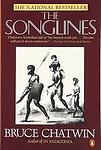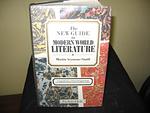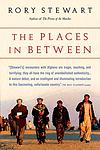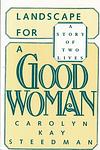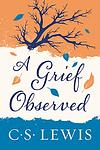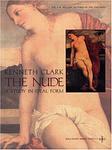The Greatest British "Nonfiction" Books Since 1950
Click to learn how this list is calculated.
This list represents a comprehensive and trusted collection of the greatest books. Developed through a specialized algorithm, it brings together 284 'best of' book lists to form a definitive guide to the world's most acclaimed books. For those interested in how these books are chosen, additional details can be found on the rankings page.
Genres
Countries
Date Range
Reading Statistics
Click the button below to see how many of these books you've read!
Download
If you're interested in downloading this list as a CSV file for use in a spreadsheet application, you can easily do so by clicking the button below. Please note that to ensure a manageable file size and faster download, the CSV will include details for only the first 500 books.
Download-
76. Nations And Nationalism by Ernest Gellner
This book presents a theoretical exploration of the concept of nationalism, the social conditions fostering it, and its role in the modern world. The author argues that nationalism is a product of industrial society, which necessitates a homogenous culture for communication and a centralized education system to sustain the industrial and economic structure. The work critically examines the origins and implications of nationalism, suggesting that it is not an ancient phenomenon but rather a relatively recent one that arises when a society transitions from agrarian to industrial. The author contends that nationalism serves to align the political and national unit, without necessarily corresponding to pre-existing ethnic or cultural identities, and is a political principle that holds that the political and the national unit should be congruent.
-
77. Revolution in the Head: The Beatles' Records and the Sixties by Ian MacDonald
This book provides a comprehensive analysis of the Beatles' music and its cultural impact during the 1960s. It delves into the creation and significance of each track, examining the technical innovations, lyrical content, and the sociopolitical context of the era. The work offers a song-by-song breakdown, exploring how the band's evolving creative dynamics and the tumultuous decade they helped define were reflected in their recordings. It is both a critical study of the band's discography and a reflection on the revolutionary spirit of the sixties, highlighting how the group's work was intertwined with the broader changes in music, politics, and society.
-
78. The Songlines by Bruce Chatwin
The book is a semi-fictional account of the author's journey through the Australian Outback, where he explores the culture of the Aboriginal people, particularly their concept of 'Songlines' - invisible pathways that crisscross Australia, ancient tracks connecting communities and following the journeys of ancestral spirits. As he travels, he delves into the nomadic way of life, the idea of walking as a spiritual practice, and the deep connection between the Aboriginal people and the land. The narrative is interspersed with philosophical discussions on topics like nomadism, anthropology, history, travel, and the nature of human restlessness.
-
79. In Xanadu by William Dalrymple
"In Xanadu" is a travelogue that follows the journey of a young historian and writer as he retraces Marco Polo's route from Jerusalem to the fabled city of Xanadu in Mongolia. Along the way, the author weaves together a rich tapestry of history and adventure, engaging with diverse cultures and landscapes. His travels take him through the Middle East, South Asia, and into the heart of China, offering insights into the complex interplay between past and present, and the enduring allure of one of history's most legendary journeys. The narrative is as much a personal coming-of-age story as it is a homage to the spirit of exploration and discovery.
-
80. Staying Power: The History of Black People in Britain by Peter Fryer
"Staying Power: The History of Black People in Britain" is a comprehensive account of the African diaspora in Britain from Roman times to the present day. The book explores the various contributions of Black people to the British society, culture, and economy, challenging the traditional narrative that Black presence in Britain began with the Windrush generation. The author delves into the struggles, achievements, and resilience of Black people in Britain, offering a nuanced and detailed historical perspective.
-
81. The Rise And Fall Of The Great Powers by Paul Kennedy
The book in question offers a comprehensive analysis of the economic and military factors that have shaped the relative power of nations from the 16th century to the late 20th century. It argues that the rise and fall of great powers are closely linked to their ability to manage economic resources and maintain military strength. The author examines the patterns of history to show how the overextension of an empire's resources often leads to decline, and suggests that managing the balance between wealth and power is crucial for the longevity of a great power. The book also provides insights into the potential future of global power dynamics by considering the implications of these historical patterns for contemporary superpowers.
-
82. The Age Of Wonder by Richard Holmes
"The Age of Wonder" explores the scientific and cultural advancements of the late 18th and early 19th centuries, known as the Romantic Age. Richard Holmes delves into the lives and achievements of prominent figures such as Joseph Banks, Humphry Davy, and William Herschel, who revolutionized fields like astronomy, chemistry, and botany. Through vivid storytelling, Holmes captures the spirit of curiosity, imagination, and wonder that defined this era, highlighting the profound impact it had on shaping our modern understanding of science and the world.
-
83. In Bluebeard's Castle by George Steiner
In this thought-provoking work, the author delves into the cultural and moral malaise that has afflicted Western civilization in the aftermath of the Holocaust. Through a series of essays, the text explores the profound impact of this historical atrocity on literature, art, and philosophy, questioning the ability of Western culture to recover from such profound moral failure. The author argues that the Holocaust represents a fundamental crisis in Western civilization, challenging its claims to moral authority and prompting a reevaluation of its cultural achievements. This work is a critical examination of the dark legacy of the 20th century and the shadows it casts on the human capacity for cruelty and the quest for understanding.
-
84. The New Guide To Modern World Literature by Martin Seymour-Smith
This comprehensive guide offers an insightful overview of modern world literature, spanning a wide array of countries and cultures. It delves into the evolution of literary movements and the impact of socio-political changes on literature from the late 19th century to the late 20th century. The book categorizes works not just by geographical regions but also by thematic and stylistic developments, providing readers with a deeper understanding of the interconnectedness of global literary trends. It serves as an invaluable resource for students, scholars, and avid readers looking to broaden their knowledge of contemporary literary landscapes and the forces shaping them.
-
85. Logic And Knowledge by Bertrand Russell
"Logic and Knowledge" is a collection of essays that delve into the philosophical inquiries surrounding logic, mathematics, and epistemology. The book compiles the author's rigorous analyses and arguments on various topics such as the foundations of mathematics, the principles of logic, the nature of truth, and the processes of scientific reasoning. Through these essays, the author explores the relationships between reality and our representations of it, emphasizing the role of logical structure in the pursuit of knowledge and the understanding of the world. This compilation not only reflects the author's profound contributions to analytic philosophy but also his enduring influence on the philosophy of language and modern logic.
-
86. The Intellectuals And The Masses by John Carey
This book presents a critical examination of the attitudes of early 20th-century intellectuals towards the masses, exploring the disdain and fear that writers and thinkers of the time harbored against the growing literacy and political empowerment of the working class. The author scrutinizes the elitist views and often eugenic arguments that were used to justify the exclusion of the broader population from cultural and intellectual life. By delving into the works and personal correspondences of prominent figures, the text reveals a landscape of intellectual snobbery and challenges the romantic idealization of literary giants by exposing their contempt for the 'masses' they often deemed inferior.
-
87. The Invisible Woman by Claire Tomalin
The book is a compelling biography that uncovers the life of a woman who played a significant yet largely unrecognized role in literary history. It delves into the hidden narrative of the mistress and muse of a celebrated 19th-century author, exploring the challenges she faced as a woman in Victorian society. Her story, which includes clandestine love affairs, heartbreak, and resilience, is pieced together from scraps of historical evidence, shedding light on her influence on the author's work and revealing the sacrifices she made. The biography is a testament to the untold stories of women who have been overshadowed by the legacies of famous men.
-
88. The Places In Between by Rory Stewart
"The Places In Between" is a memoir by Rory Stewart about his journey on foot across Afghanistan in 2002, shortly after the fall of the Taliban. He travels from Herat to Kabul, encountering a variety of people and landscapes along the way. The book provides a unique insight into the culture and history of Afghanistan, as well as the challenges faced by the country in the aftermath of war. Stewart's writing is both lyrical and informative, making for a compelling read.
-
89. Landscape For A Good Woman by Carolyn Kay Steedman
This book is a poignant exploration of the author's working-class upbringing in post-World War II Britain, intertwining personal memoir with social history. It examines the complex relationship between mothers and daughters, the impact of poverty on women's lives, and the societal expectations placed on women in the mid-twentieth century. Through a blend of historical analysis and autobiographical narrative, the author reflects on her own experiences to challenge traditional narratives about the working class, revealing the emotional and psychological landscape that shapes a woman's identity and aspirations.
-
90. Concerning Computers, Minds, And The Laws Of Physics by Roger Penrose
In this thought-provoking book, a renowned physicist challenges the widely held belief that artificial intelligence can ever truly replicate the complexities of the human mind. Delving into the realms of mathematics, physics, and philosophy, the author argues that consciousness and understanding are fundamentally non-algorithmic processes that cannot be captured by machines. By examining the laws of physics and the nature of computation, he presents a compelling case for the unique qualities of human thought, suggesting that there are aspects of reality and our understanding of it that transcend what can be computed by mechanical means.
-
91. The Reason Why by Cecil Woodham-Smith
"The Reason Why" is a historical narrative that explores the circumstances leading to the infamous Charge of the Light Brigade during the Crimean War. The book delves into the lives and personalities of key figures involved, including Lord Cardigan and Lord Lucan, highlighting their personal rivalries, political machinations, and the miscommunications that led to the disastrous military action. The narrative is meticulously researched and provides a detailed account of the event, shedding light on the complexities of British military bureaucracy and the tragic consequences of poor leadership.
-
92. Napoleon by Vincent Cronin
This biography provides a detailed account of the life of Napoleon Bonaparte, the French military and political leader. It covers his rise to power during the French Revolution, his rule as the First Consul of France, and his reign as the Emperor of the French. The book also delves into Napoleon's personal life, his relationships, and his eventual downfall and exile. The author offers a balanced and nuanced portrayal of Napoleon, highlighting both his genius and his flaws.
-
93. Nora by Brenda Maddox
This biography provides an in-depth look at the life of the woman who was the muse and wife of one of the 20th century's most influential writers. It explores her unconventional relationship with her husband, her role in his creative process, and how she challenged the norms of her time. The book delves into her personal struggles, her husband's literary fame, and the impact she had on his work, offering a nuanced portrait of a complex and often misunderstood figure who played a crucial role in the shaping of modern literature.
-
94. Dr. Johnson & Mr. Savage by Richard Holmes
This book delves into the complex friendship between the 18th-century literary figure Samuel Johnson and the enigmatic poet Richard Savage. It explores the profound influence they had on each other's lives and works, set against the backdrop of London's vibrant and often sordid literary scene. The narrative weaves a tale of two men from vastly different backgrounds who form an unlikely bond, with Johnson becoming fascinated by Savage's scandalous history and the mysteries surrounding his true identity. Through their association, the book examines themes of authorship, friendship, and the struggles of the creative life, while also painting a rich picture of the society they navigated.
-
95. Reasons And Persons by Derek Parfit
This philosophical work challenges traditional notions of self-interest, rationality, and ethics, arguing that our conventional understanding of these concepts is deeply flawed. The author proposes that the boundaries of personal identity are less clear-cut than we might think, leading to profound implications for moral responsibility and the ethics of future generations. Through rigorous analysis and thought experiments, including the famous "repugnant conclusion," the book pushes readers to reconsider the basis of morality and the ways in which we consider the interests of ourselves and others, ultimately suggesting that reasons and persons are intricately connected in the fabric of ethical reasoning.
-
96. Awopbopaloobop Alopbamboom: The Golden Age of Rock by Nik Cohn
This book is a lively and passionate chronicle of the rise and impact of rock 'n' roll music during its golden age. The author provides a detailed examination of the genre's evolution, highlighting the contributions of iconic artists and bands. The book is filled with personal anecdotes, critical analysis, and vivid descriptions of concerts and cultural moments, providing an immersive and insightful look into the world of rock 'n' roll.
-
97. Awakenings by Oliver Sacks
The book is a poignant exploration of a group of patients who contracted sleeping-sickness during the great epidemic just after World War I. Frozen for decades in a trance-like state, these men and women were given up as hopeless until 1969, when a brilliant neurologist started treating them with a new drug, L-DOPA, which enabled them to come back to life. The work delves into the profound nature of being human, the complex relationship between the body and mind, the beauty of the physical world, and the transformative power of medicine.
-
98. Grief Observed by C. S. Lewis
This book is an intimate exploration of a man's grief after the loss of his wife. The author delves deeply into the nature of grief, faith, and love, questioning his own beliefs and grappling with profound feelings of loss and sorrow. With raw honesty, he shares his journey through the various stages of grief, ultimately finding a renewed sense of faith and understanding of God's role in human suffering.
-
99. The Nude: A Study in Ideal Form by Kenneth Clark
"The Nude: A Study in Ideal Form" is an exploration of the portrayal of the human body in art. The author analyzes the evolution of the nude form from ancient Greece to the modern era, discussing the cultural, philosophical, and aesthetic factors that have shaped its representation. The book examines the concept of 'ideal beauty', the symbolism of nudity, and the artistic techniques used to convey the human form, providing a comprehensive and insightful look into one of the most enduring themes in art history.
-
100. A Book of Mediterranean Food by Elizabeth David
This book is a comprehensive guide to Mediterranean cuisine, offering a wide variety of recipes from different regions. It presents an array of dishes from simple to elaborate, using fresh, local ingredients characteristic of the Mediterranean diet. The author's in-depth knowledge and passion for the region's food culture are evident in the detailed descriptions and historical context provided for each recipe. The book also includes personal anecdotes, making it an informative and enjoyable read for food lovers.
Reading Statistics
Click the button below to see how many of these books you've read!
Download
If you're interested in downloading this list as a CSV file for use in a spreadsheet application, you can easily do so by clicking the button below. Please note that to ensure a manageable file size and faster download, the CSV will include details for only the first 500 books.
Download

